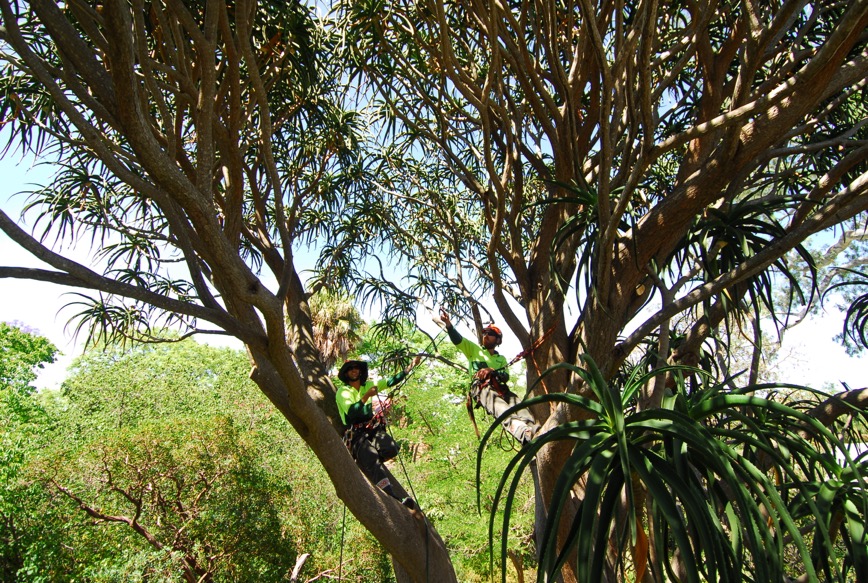Invasive Plant Species Management
Woody weeds
Invasive species come in many forms. Woody weed species such as the European olive, Aleppo pine, Radiata pine, hackberry, Italian buckthorn, hawthorn, desert ash, and willows are causing problems in some environments. Often, these species are found along watercourses, where their effects can be dire for the environment.
Throughout Adelaide woody weed species have detrimental effects on biodiversity, amenity, wildlife corridors and natural watercourses.
Non-woody invasive species
Other less obvious invasive plant species occur in most gardens with subtle but nevertheless important detrimental effects on nearby plants. Many gardens are overrun by a variety of self-spreading perennial plants. The most common species found around trees causing adverse health impacts are;
- Agapanthus species – African lilly, Lilly of the Nile,
- Natal lilly – Clivia miniata
- English Ivy - Hedera helix
- Sword Ferns - Nephrolepis sp. & Polystichum sp.
- Wild iris – Dieties bicolor
- Native violet – Viola hederacea
- Wandering jew - Tradescantia fluminensis.
- Canna lily – Canna sp.
There are many others that are less common but equally debilitating for the plants around them.
These perennials in the main belong to a group of plants that are typically found in bogs and other very wet places.
They are almost never found in nature in the vicinity of trees.
Perennials are incredibly tough plants, consuming the vast majority of resources from the soil in their vicinity and leaving little or nothing for young trees or the root systems of larger trees where they occur together.
They have a significant debilitating effect on the growth of young trees in particular and can prevent the successful establishment of newly planted trees. There is evidence to suggest plants produce a wide variety of chemicals that interfere with the growth of other plants in a variety of ways. This process is called allelopathy.
Where these species, or species like them exist in gardens, they should be controlled and confined to small areas away from trees to minimise adverse impacts, or replaced with more appropriate, non-invasive species.
As part of our commitment to maintaining healthy trees in healthy environments for the benefit of our clients we urge all clients to consider this important issue and take whatever steps they can to reduce the scourge of woody weeds, or the debilitating effects of bog plants on their valuable trees and other plants.


